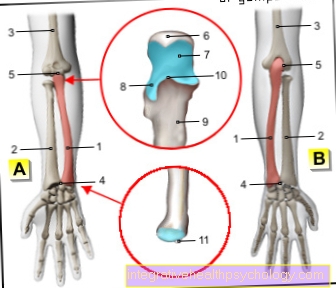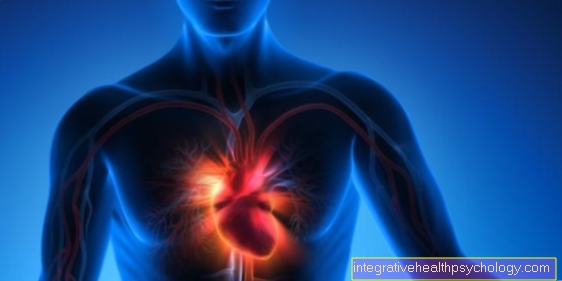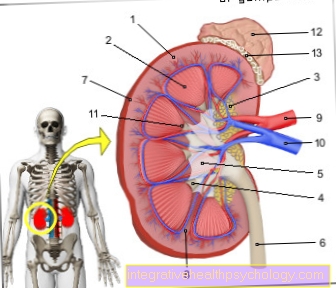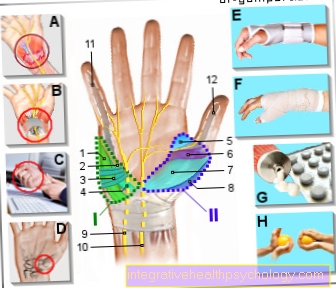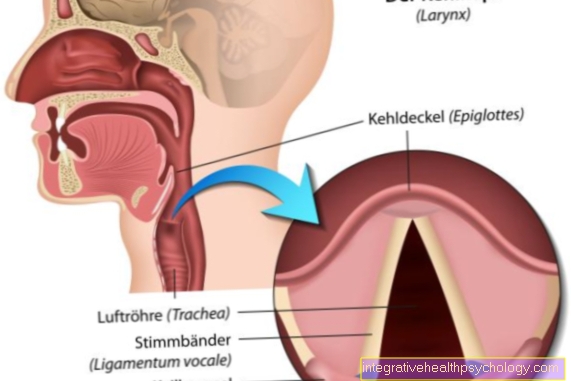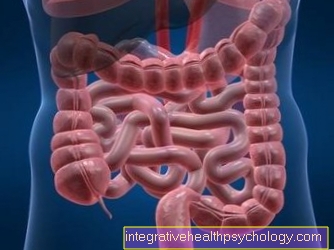Vegetative syncope
Synonyms
Vasovagal syncope, blackout, fainting, circulatory collapse, collapse, collapse, black-out-before-eyes
definition
The vegetative syncope is a short-term unconsciousness as a result of a harmless mismatch of the circulatory system by the vegetative nervous system with emotional stress, exhaustion, long periods of standing still (guards) or pain.

Excessive activation of the vagus nerves leads to an expansion of the veins whereby the blood, following the force of gravity, sinks into the legs. At the same time, the activation of the vagus reduces the heart's capacity and the circulatory system is unable to supply the brain with an adequate blood supply, which leads to a brief faint. Since sufficient blood reaches the brain when lying down, the unconsciousness is usually only short-lived.
Because syncope (= unconsciousness) can also be a symptom of a serious underlying disease, extensive diagnostics are carried out in certain cases.
Epidemiology
Vegetative or vasovagal syncope accumulate in childhood and adolescence as well as in old age. Overall, the frequency of fainting attacks of any kind is given as 0.7% per year, the most common cause being vegetative dysregulation.
Symptoms
As a portent, paleness, tremors, colder Sweat, Flicker or blackening in your eyes, or ringing in your ears. In a fainting spell, those affected sink to the ground, twitching or seldom occur cramps on the limbs. The loss of consciousness only lasts for a short time, after which those affected are quickly oriented.
Differential diagnosis
Especially in older people with previous illnesses, vegetative syncope is a diagnosis of exclusion because a fainting attack can also be a symptom of a serious illness. Possible organic causes of syncope can be:
- Cardiovascular system: low blood pressure, orthostatic dysregulation (dysregulation of the CardiovasculaCoordination when standing up), cardiac arrhythmias, heart attack, heart failure, pulmonary embolism
- Brain: Circulatory disorders such as TIA, PRIND (Precursors to a stroke), stroke, Cerebral hemorrhage, Increased intracranial pressure, epilepsy
- Metabolic diseases: Metabolic imbalance, Hypoglycaemia, Anemia (anemia), mineral disorders, medication
therapy
"Shock positioning"i.e. the upper body of the person concerned is lowered, the legs are raised. This promotes the reflux of the "sagged“Blood to the heart and therefore also to the brain. In principle, vegetative syncope rarely requires treatment. Affected will Cardiovascular training recommended through endurance sports and alternating showers; they should also make sure to drink enough. In very rare cases it may be necessary to stabilize the circulation with drugs that have an activating effect on the autonomic nervous system (Sympathomimetics).


